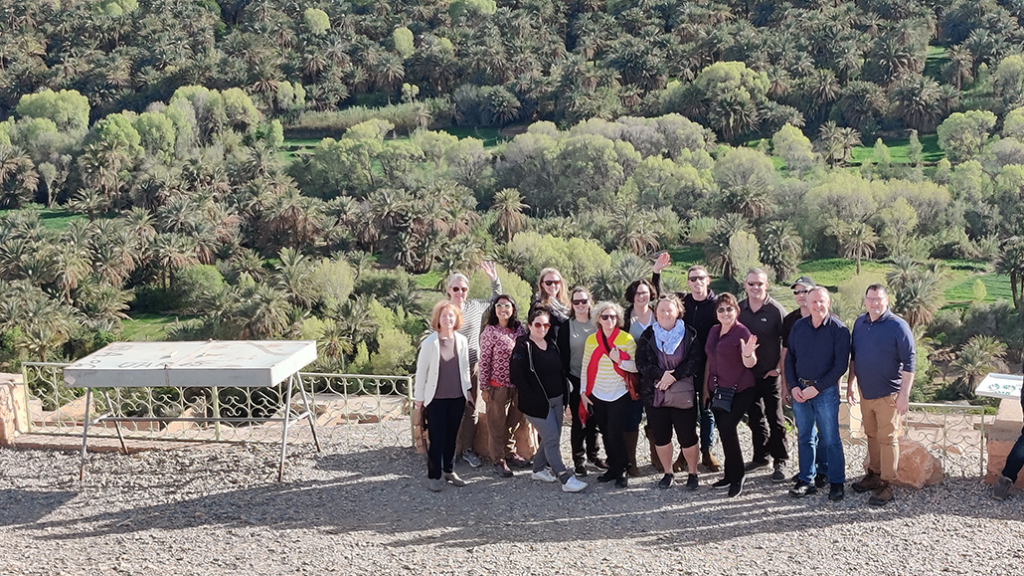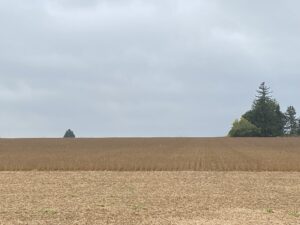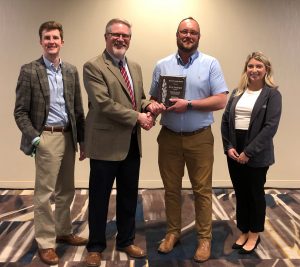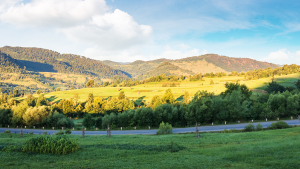A global perspective
AALP CLASS 18 VISIT PORTUGAL AND MOROCCO

THERE IS NO corner of the world that does not rely on agriculture to feed its people, provide income for families, and bring money into the countries’ economies. In late March and early April of 2022, the Advanced Agricultural Leadership Program (AALP) Class 18 visited Portugal and Morocco to develop a better understanding of global agriculture and to meet people who work to provide food and other resources to the world.
Although there are clear differences between Ontario agriculture and the agriculture in Morocco and Portugal, there are also many similarities. Their farms are smaller on average, but they still struggle against the unpredictability of nature and weather. Their farms have different practices as they serve specific export market needs, but they still deal with government regulations that impact their ability to farm sustainably.
Portugal and Morocco are about 850 km apart — slightly less than the distance from Ottawa to Halifax — but their landscapes and way of life are very different. Both countries have experienced revolution and liberation in this lifetime, hold close to their heritage, and have pride in their accomplishments.
In 1956 Morocco started to become independent from French and Spanish protectorates after King Mohammed V negotiated the country’s freedom in exchange for instituting a constitutional monarchy with a democratic government.
Portugal is one of the oldest nations, with 1143 as the year of its independence. The country moved from a monarchy to a dictatorship and, in 1976, became a democracy after the Carnation Revolution. The nation is often compared to Spain but craves a unique identity. They see Spain as one of their main agricultural competitors and one of their main export markets.
“Listening to our hosts and guides discuss the histories of both places, the passion they had for their countries was very clear. As we were visiting and learning, I found that Portugal had a much more ‘western’ feel and was more cosmopolitan. However, the cities in Morocco that we visited – Rabat, Fes, and Casablanca – were much more westernized than I had imagined. There seemed to be a more disparate amount of poverty in Morocco in the rural areas,” says Victoria Berry, Class 18 participant and manager of communications at Grain Farmers of Ontario
IRRIGATION CONCERNS
Meeting with agriculture officials and growers in both Portugal and Morocco, it was clear that the number one concern for farmers was water. Neither country has abundant access to fresh water for farming, and both rely on rainwater, expensive irrigation systems, and building dams to create water sources.
“It was a good reminder of how lucky we are to have the typical amount of rainfall that we have in Ontario. The farmers we met with, and the organizations we spoke to, feel the pressure of providing food to their own people and to their export markets and the number one resource they need to increase their yields is water. There were other issues impacting their ability to grow, but without water, the rest won’t matter,” says Scott Persall, vice chair, Grain Farmers of Ontario Board of Directors and director for District 5 (Elgin, Norfolk).
In Morocco, Class 18 learned that meteorologists predict a 20 per cent decline in water. The Ministry of Agriculture told the class that there are about eight million hectares of arable land in Morocco, with arable land loss at about 20 per cent per year. 1.6 million hectares are on irrigation, of which only 600,000 are on localized irrigation, which is the most efficient. The Ministry is implementing a financial aid program to encourage companies to develop irrigation solutions, including micro-sprinkle systems, other pressurized systems, or seawater desalination. The goal is to have 900,000 hectares with localized irrigation by 2027.
In the past, Morocco has relied on dams to protect against drought years, but recently dams have come under fire from environmental groups, according to Class 18’s tour guide.
The Confederação dos Agricultores de Portugal (CAP) represents Portuguese farmers and the national agricultural sector and provides training, information centres, and advocacy services. They told Class 18 they are focused on efficient water use but need more water to increase yields and meet demand. Agriculture counts for about six per cent of the GDP of Portugal, so there is room for growth, but they need water to realize it.
Alqueva, the largest man-made lake in the European Union (EU), is in the Alentejo region of Portugal and is used for irrigation, electricity, drinking water, and more. This has been a success for the region in terms of irrigation, even in drought times.
João Coimbra, the owner of Quinta da Cholda, a large corn farm in Portugal, said the juxtaposition of the irrigation needs is that “there is not a lot of rain in Portugal, but then there can also sometimes be a lot of rain. If that happens, we also need drainage.” He noted that water represents between 25 and 35 per cent of his costs.
“It was interesting to see how mixed irrigation and climate change topics were. Whenever water use was mentioned, there was an emphasis on efficiency that seemed directly related to climate change policy. In Portugal, they have the Green Deal, and in Morocco, they have the Green Morocco Plan,” says Persall.
CLIMATE CHANGE AND FEEDING PEOPLE
Portugal Fresh is a program that promotes the fruits, vegetables, and flowers of Portugal, domestically and abroad. The president and CEO of Portugal Fresh, Gonçalo Santos Andrade, met with Class 18 to talk about key markets and market requirements for Portugal produce. Andrade noted that the European Green Deal places the EU as a leader in climate change policy, but it relies on other countries implementing the same types of policies, and that is not happening — specifically India, China and the U.S.
Portugal Fresh advocates with the government and tries to “focus on the grower’s point of view. The importance of economic sustainability is often overshadowed. A farmer needs to make money to keep going and build in biodiversity or reduce emissions, which requires investment by the farmer, so we try to bring that viewpoint,” Andrade says.
He noted that the Farm to Fork strategy of the Green Deal, which focuses on emission reductions and fertilizer use reduction, could change in light of the war in Ukraine and the impacts on the global food system that could come as a result of fertilizer and wheat shortages.
Both CAP and Portugal Fresh understand the value of minimizing environmental impact and are working with farmers and the government to align as much as possible in those areas. l
Quinta da Cholda, the Portuguese corn farm, has implemented new practices over the last three to four decades to keep the farm sustainable and make the farm a thought leader in the industry. Coimbra listed several key ways they are looking at sustainable practices.
“Corn prices are decreasing right now, so we have to produce more with less. We want to reduce emissions and reduce energy where we can, so we build efficiency into the process as much as we can. We are trying self-driving vehicles to reduce diesel use by 30-40 per cent. We go by the law of the minimum for our fertilizers; we map for soil compaction areas and only plow those when needed; we use drone footage to target weed spots,” Coimbra says.
He added that the question they ask is: Will the same piece of land still produce the same amount in 50 years? Coimbra uses unproductive land to create conservation areas on the farm and adds buffer zones, no-till areas, hedges, and more trees. He stressed that he is not an organic farmer and doesn’t believe he could meet the demand for corn without herbicides, but he believes completely in the use of conservation zones. He wants the government to recognize the impact and importance of these zones in emission reductions.
“I found the similarities between this Portuguese corn farm and our own grain farms here in Ontario, especially in terms of the sustainability practices already in place and the evolution of those practices. His willingness to try and his understanding of consumer and market demands and how that is reflected in his farm was really intriguing,” Berry says. this is a good place to “go online.”
The Moroccan Ministry of Agriculture says that the Green Morocco and Green Generation 2030 programs are about respecting the environmental ecosystems and finding ways for more people to live with and share out fewer resources sustainably. They anticipate a delay in their green programs because of COVID shutdowns, with the current target for implementing more efficient water use and deforestation reduction practices set for 2027.
“I could sense the underlying conflict that everyone in agriculture feels here in Morocco and Portugal too – how will we be able to follow government guidelines and still produce enough food? Is the importance of food production volume even part of the discussion around agriculture and climate change policies? Our hosts and guides in both Portugal and Morocco made it clear that these nations are very food insecure. Their reliance on imports was huge, yet they are handcuffed somewhat when it comes to producing more,” Persall says. “I could also see how dedicated they were to continue to farm and grow. In that way, it felt a bit like home.” •




















